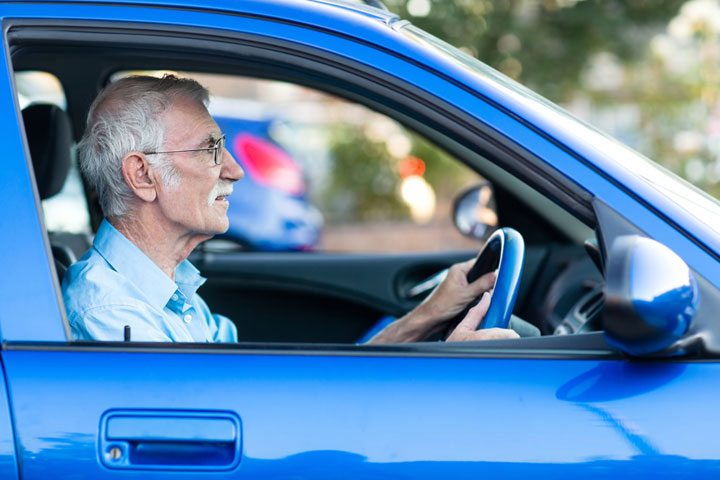Updated May 2025
Americans are drivers. Cars are associated with freedom and independence. For people who don’t live in cities with reliable public transportation, cars may be a necessity.
In 2023, more than 51 million licensed drivers in the United States were age 65 or older. More than one in five licensed drivers fell within that age group. Men between the ages of 65 to 84 have a higher percentage of licensed drivers than any other male age group.
The increasing number of older drivers is only partially explained by the growth of the nation’s senior population. People are working past traditional retirement ages. Seniors who commute to work or use their cars in their work continue to drive. Improvements in senior health also encourage older people to remain active. They drive to parks, malls, and vacation destinations rather than staying at home.
Age and Driver Safety
The perception that older drivers are bad drivers is one of many negative stereotypes about seniors. The stereotype is largely unfounded. Insurance industry data is not always consistent, but there is evidence that drivers over the age of 70 have a lower fatal crash rate than drivers between the ages of 35 and 54. There is also evidence that drivers who are 80 and over pose higher risks to other persons on the road and pedestrians.
The insurance industry justifies rate increases for older drivers in part on its perception that older drivers as a group are less physically robust than younger drivers and are therefore more likely to experience fatal injuries in a crash. While many insurers increase the rates of senior drivers as they grow older, the International Risk Management Institute recommends that insurers peg rates to physical abilities and the number of miles driven rather than basing the cost of a policy on the stereotype that seniors are dangerous or fragile drivers.
Several factors explain why older drivers tend to be safer drivers. Older drivers have a wealth of driving experience. They can anticipate and handle hazardous situations because they’ve seen them before. Younger drivers are also more likely to be distracted by cellphones or to drive under the influence of alcohol or drugs. Seniors may be more inclined to obey the rules of the road. They know their limitations and are unlikely to take risks, such as driving in bad weather.
When Is It Time to Stop Driving?
Age often correlates with a decline in reaction time, night vision, and dexterity. Macular degeneration, arthritis, and other age-related health conditions can impair the ability to drive safely. Yet everyone ages differently. Healthy 80-year-olds may be more capable of safe driving than younger drivers who suffer from health conditions that impair their attentiveness or eyesight.
While children may worry that their parents are getting too old to drive, there is no magic age at which seniors should stop getting behind the wheel. Vision and hearing care can help drivers overcome limitations that could affect driving ability. Drivers can also learn to compensate for a decline in reaction time or dexterity by driving at safe speeds and making constant observations of the road.
Automatically taking the keys from parents when they reach a certain age can have unintended consequences. The loss of independence associated with driving may increase social isolation, cause a loss of self-respect, and trigger depression.
Discouraging parents from driving when they are still capable of driving safely is counterproductive. Like any other skill, drivers need to practice driving regularly to maintain their confidence and stay sharp. Asking parents to limit their driving might actually impair their ability to drive safely.
Rather than setting an arbitrary age limit, children should monitor their parents’ driving. Decisions about driving should be based on an observable deterioration in skill, not on the expectation that skills will deteriorate. A child might ask to ride along when a parent drives to the grocery store. If a parent is complaining about the sun’s glare, the child might want to suggest wrap-around sunglasses. If the parent is finding it difficult to make driving decisions, it might be time to discuss the parent’s physical or mental condition with the parent’s doctor.
Children can help their parents stay safe by encouraging them to exercise and remain physically and mentally fit. Exercises that improve flexibility in the neck help drivers look to the side and check mirrors before turning or changing lanes. Studies show that regular exercise also improves the reaction time of older drivers. The pickleball craze offers a unique opportunity for seniors to have fun while exercising in a sport that isn’t physically demanding.
(This article was updated May 2025 since it originally published November 2022.}
